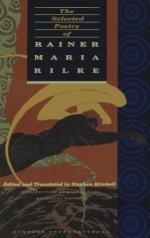
|
| Name: _________________________ | Period: ___________________ |
This test consists of 5 multiple choice questions, 5 short answer questions, and 10 short essay questions.
Multiple Choice Questions
1. What is the name of the last poem in Book 1, Chapter 3?
(a) "Fame in Glory."
(b) "Buddha in Faith."
(c) "Heaven in Glory."
(d) "Buddha in Glory."
2. Which poem most portrays the power of classical theme in poetry?
(a) "Black Cat."
(b) "Archaic Torso of Apollo."
(c) "Alcestis."
(d) "The Flamingos."
3. The author's message in "Requiem for a Friend" is that when something is lost, it is also _________.
(a) Hated.
(b) Joyous.
(c) Preserved.
(d) Missed.
4. What is the name of the author of Greek tragedies?
(a) Shakespeare.
(b) Alcestis.
(c) Sophocles.
(d) Oedipus Rex.
5. Which of the following is a line from "I am the Anxious One"?
(a) Won't you stay and ease my fears?
(b) Don't you hear my voice?
(c) Can't you hear the words?
(d) Don't you love me anymore?
Short Answer Questions
1. In which poem is personification most relevant?
2. Which of the following best describes the poem about Lord in Book 1, Chapter 1?
3. Which of the following is evident in Rilke's poems?
4. Which word best describes Rilke in the second stanza of "I am the Anxious One'?
5. What is the title of Book 1, Chapter 3?
Short Essay Questions
1. Describe the rhyming scheme of the poem in which the gazelle is the subject.
2. What is the significance of the diction in "Buddha in Glory"?
3. What does the narrator of "Requiem for a Friend" admire about Paula?
4. What does Rilke proclaim in "I am the Anxious One"?
5. How does the tone change in "I am the Anxious One"?
6. What are the consequences of translating German to English?
7. Why is the "City of Time" a complex translation?
8. What is the message found in "I find you, Lord, in all Things and in all"?
9. How does the author change from the first stanza to the second in "I am the Anxious One"?
10. Why is the first line in the poem about Alcestis significant?
|
This section contains 766 words (approx. 3 pages at 300 words per page) |

|




